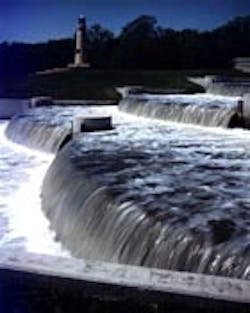Sewage-Cooking Plant in Chicago Suburb Sparks Debate
Source Chicago Tribune
A towering machine built to turn Chicago's sewage into fertilizer is scheduled for its first test in June in west suburban Stickney, Ill.
However, staff at the Metropolitan Water Reclamation District have concluded that the project, which is nicknamed the "Black Box" and could cost taxpayers $217 million, isn't needed to dispose of the district's waste, according to the Chicago Tribune. They have begun seeking ways to get out of the costly contract, the newspaper reported.
Since the contract was signed nearly a decade ago, officials have found alternative methods to market sludge as fertilizer, and they project that existing disposal methods will work for at least the next 40 years.
The project could cost more than $217 million if the agency pays off construction bonds and operates it for 20 years at the Stickney plant.
Staff recently told the district's elected commissioners that the contract requires them to operate the sludge ovens for at least five years. After that, the district could buy out the contract, an option that would still cost taxpayers $188 million.
The only immediate alternative depends on a series of four tests scheduled to begin in June, staff said. If the ovens do not operate properly, agency officials say the district can rip up the contract and not pay anything.
The project's costs until now have been covered by the company and construction bonds floated by the nearby village of Hodgkins, the newspaper reported.
Richard Lanyon, the district's current general superintendent, who took office nearly six years after the contract was awarded, said, "We know [that starting up and operating the Black Box] is not the most cost-effective option."
The machine, known as a “pelletizer,” was designed to turn about a quarter of the region's household and factory sewage from sludge into tiny dry pellets. Most pathogens would be destroyed by intense heat. Supporters of the project said the dried waste would be marketable as fertilizer or soil conditioner.
In December, independent auditors hired by the district concluded the project was more than $15 million over its $54 million construction budget, the newspaper reported. The auditors also questioned more than $800,000 in overhead billed by a Bart Lynam-owned company, Biosolids Management, Inc., and his corporate partner, Veolia Water North America.
Lynam was the district's general superintendent between 1973 and 1978, leaving about a year after being acquitted of corruption charges. He became involved in the Stickney project in the late 1990, when the venture he partially owns was awarded the contract.
Source: Chicago Tribune
